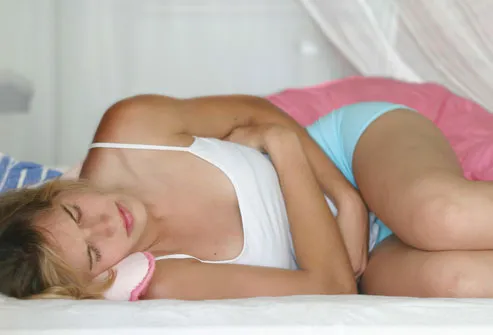
What is Endometriosis? Endometriosis is a painful, chronic disease that
affects at least 6.3 million women and girls in the U.S., 1 million in
Canada, and millions more worldwide.
I was never the type of girl who was eager to grow up. I wasn’t anxiously awaiting the boob fairy
(which is good since she never did stop for too long!) and I certainly didn’t
want to get my period. When it arrived,
I felt resigned to the hassle.
My mother warned me that heavy periods ran in the
family. She told me that we were still
lucky because “we” didn’t suffer from painful periods. Heavy?
Yes. Painful? No.
Normally, I relished contradicting her.
So it was out-of-character for me to stay quiet when I did have
pain. In the early years of womanhood,
the pain was there, yet it was bearable.
The heavy flow was a much bigger battle in high school, forcing me to
try to get to a girls’ bathroom hourly and, for the first few days, even get up
from sleep every two hours to change. Over time, my pain grew worse. In college, I occasionally needed to lie down
to escape it. In graduate school, I’d curl
up and cry monthly and I lost a large chunk of studying time every month. Over the counter (OTC) remedies stopped
helping me; I finally stopped bothering with the cost. Within a year of finishing school (age 24),
it would hit the “just let me die” level.
And yet, I still didn’t speak up. I can’t cite a single reason. I had other medical issues and was fine
talking to doctors about health matters.
In college, I helped run workshops for teens on safe sex so I could talk
about sensitive issues. I eventually
told a GYN about the heavy flow and asked for the Pill (the birth control side
was a plus). Yet, I still didn’t mention
my severe pain. To date, I don’t recall
ever being asked. The Pill proved a
great help with the flow issues, but not the pain. My pain began starting sooner, and lasting
longer, it eventually became a month-long source of agony; rather than just
tied to my period (which had lasted 6-7 days, the Pill cut that to 5). I knew then, that I had to speak up. But I didn’t.
Then one day I passed out at work.
It wasn’t the first time I’d passed out, I’d often welcomed hitting that
point since it let me escape, but it was the first time it happened away from
my bed. I don’t recall if my secretary
actually heard me hit the ground, the desk chair sliding out from under me, or
if she just saw me stumbling a bit afterward when my normally olive-tan skin
went ghost pale. I called the doc, they
fit me in, and (after I rejected her offer to drive) my secretary put me in a
cab.

As soon as I spoke up, talked to the doc, and did a bit of
research, I knew endometriosis was the culprit.
The doc suspected it too, but did a bunch of other tests first since endometriosis
diagnosis requires surgery. There were a
few bumps, tears, and fears on the way to the formal diagnosis, but I know that
process was much worse for many others. I
felt fear when the diagnosis came, but also felt relief. I finally had a name to my ailment and proof
that I wasn’t just a wimp.
There is no cure for endometriosis. I’ve had three surgeries to remove tissue (it
grows back, many women have repeat surgeries).
I take continuous birth control pills (i.e. no placebo week, no period)
and they do help a lot. But if I miss
even one or two, I’m back in the fetal position. The most honest of docs admitted “It is
likely we will never get you pain-free” and my reality is that the potential
for severe pain is always lurking. One
of the hardest parts is that the pain, which pops up even with the hormone
stabilization, is completely invisible.
I’ve faked phone calls where I let people “overhear” me saying the pain
was intense so that someone would offer me a seat on the train since they
couldn’t tell anything was wrong from looking.
People doubt pain they can’t see, even more so when it is in the realm
of “women’s issues.”
Endometriosis can be a very lonely disease. My number one piece of advice to women facing
endometriosis is to reach out. There is
an amazing community of women who support each other and who DO
understand. They are willing to talk
about it all -- pain, heavy bleeding, treatments that work, treatments that
don’t, and the impact it all has on sex.
You can find blogs and support groups online (even on Facebook). This demon is REAL and you are NOT
alone. Speak up.


Story by Cheryl Edwards
Endometriosis Resources
www.medicinenet.com/endometriosis
http://www.mayoclinic.com/health/endometriosis/DS00289/DSECTION=tests-and-diagnosis
http://www.endo-resolved.com/diet.html

No comments:
Post a Comment